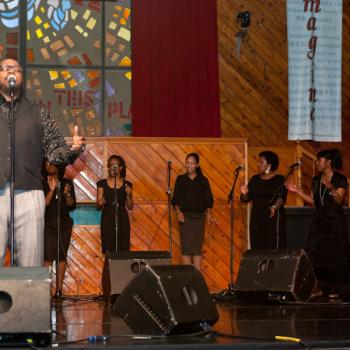The Harry & David catalog may seem like a strange catechism, but markets -- as a set of institutions and institutionalized norms, not as a collection of products -- seem to exercise a salutary effect on the moral character of complex societies. In fact, the same study also found that market institutions work in tandem with, not in opposition to, world religions to galvanize prosocial behavior. Membership in a world religion, Islam or Christianity, for the purposes of this study, was found to co-vary with fairness, though not across all measures. It's not difficult to understand why: religion uses both supernatural incentives and community ritual to promote group solidarity beyond kinship networks, even among members who have never met. Together with market institutions, global religious institutions facilitate cooperation and exchange in complex societies of strangers bound together only by cognitive frames and social norms. It is no accident that the ancient Athenian agora, that proto-public seedbed of the ideas and institutions that shaped Western modernity as we know it, encompassed both the market and the temple.
If at this point you are feeling vindicated in your own political and religious affiliations -- perhaps you too favor free trade and identify with a world religion, imagine that! -- then allow me to conclude with a bit of cold water: this study ultimately challenges some of the deepest claims of monotheism even if it also endorses some of its social effects. The experimental findings are meaningful only within the framework of evolutionary psychology, hardly known for its friendliness to theism. The implications of the study reach far beyond the effects of market institutions to the meaning of human nature and the basis of morality itself. For if markets exert a deep constitutive effect on moral systems, and if modern prosociality is the result not of innate human psychology -- what we might call divine nature -- but rather of the historical march of political economies, then our current understandings of revelation and divine anthropology cannot provide an exhaustive account of them. Evolutionary historicism need not lead directly to a secular relativism -- one must at least pass Go and collect $200 first -- but it does take us some distance in that direction. I'm guessing we'll find a WalMart when we get there.





